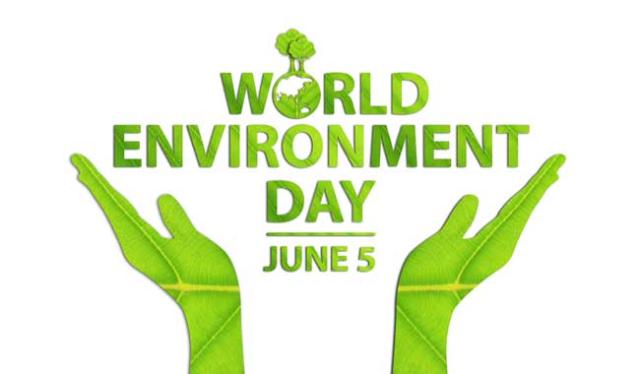
Today is World Environment Day! Beat Plastic Pollution - If you can’t reuse it, refuse it!

World Environment Day has helped raise awareness of environmental concerns such as: depletion of the ozone layer, toxic chemicals, desertification and global warming. Since it began in 1974, it has grown to become a global platform for public outreach that is widely celebrated in over 100 countries.
North Carolina has previously celebrated the event by cleaning some public areas as part of the Adopt-A-Highway program. North Carolina is also a coastal state with a wealth of natural resources. Keeping plastics out of the ocean is also a big challenge in the state.
This year’s theme for World Environment day is “Beat Plastic Pollution” one of the greatest environmental challenges of our time. The theme invites us all to consider how we can make simple changes in our everyday lives to reduce plastic pollution. While plastic has many valuable uses, we have become over reliant on single-use plastic. About 50 percent of the plastic used is disposable and used only once.
India is this year’s host for the World Environment Day celebration. India will lead a global charge to beat plastic pollution through civic engagement and celebrations. The 2018 World Environment Day’s goal is to inspire solutions and foster the dialogue that can lead to sustainable behavior change upstream by rethinking our approach to designing, producing and using plastic products.
In the U.S. we talk about climate change when droughts, forest fires or more intense hurricanes hit, but these visible threats are only a small part of the story.
How does plastic and climate change affect our agriculture?
Crops cannot grow where there are plastic products around because their roots cannot move around it. It’s really amazing that things like plastic bags are so strong that the roots of trees are unable to pierce it to find its way inside the soil to find nutrients.
The most significant negative impacts of plastic products on agriculture are:
• Reduced soil fertility and nutrients
• Reduced nitrogen fixation
• Reduced crop yield
• Imbalance in soil fauna and flora
• Increased risk of flooding
• Deforestation and destruction of habitats
• The need for higher fertilizer use.
People are using plastic bags and products which are environmentally dangerous for their daily needs and the environment and agricultural lands are thereby being polluted. As a result we will be getting warmer temperatures that would likely result in a change of the ecosystem. Plants that once grew in certain regions will now thrive farther north. Because of the warmer temperature and potential drying of the soil, irrigation may need to be expanded, or else marginal lands will have to be taken out of production or switched to more suitable crops. Pests could increase in range, necessitating the use of more pesticides. Forests could also die back and change to a more open prairie.
Soil moisture could decrease under the higher temperatures and more intermittent rainfall, even if the total amount of rainfall increases. In parts of the Southeast, like northern Georgia, there are 20 fewer days below freezing each year than there were 40 years ago. The number of days above 90°F is expected to almost triple over the next 100 years. This could cause heat stress not only for humans, but animals and crops as well.
Crops that are already near their temperature limits will be the most affected in terms of yield and quality if temperatures continue to rise. The crops that are not near their temperature thresholds would benefit from warmer temperatures, and would likely increase their yield and quality.
All of these changes will affect the costs of agricultural production and the demand for your products in the future. In addition climate change will exacerbate air pollution, threaten safe drinking water, and create additional food insecurity.
It should be one of our main objectives to reduce air pollution, keep our drinking water clean, our land safe, our buildings free of indoor air pollutants and chemicals, our communities livable and green and maintain our diets nutritious.
People have started to turn down plastic straws and cutlery to clean beaches and coastlines, and reconsidering their purchase habits in supermarket aisles. If this happens enough, retailers will quickly get the message to ask their suppliers to attend their needs and ideals.
While these steps are a cause for celebration, the reality is that individual action alone cannot solve the problem. Even if every one of us does what we can to reduce our plastic footprint – and of course we must – we must also address the problem at its source.
North Carolina Biotechnology Center – Ag Biotech Professional Forum
The Ag Biotech Professional Forum is a series held throughout the year providing the opportunity to learn about N.C.’s diverse agricultural resources, while also offering a setting for networking and engagement outside of our normal work spaces.
The next one is the Summer Social to begin at 4:15 p.m. on June 27th. The event at the North Carolina Biotechnology Center will feature an amazing speaker, fun demos, great food and drinks, giveaways and of course fun with colleagues.
